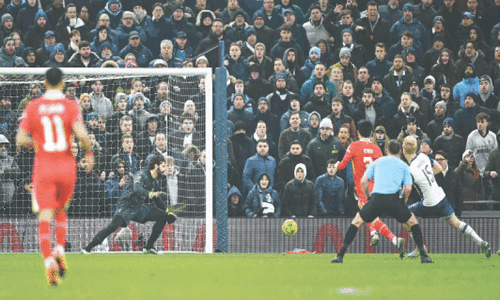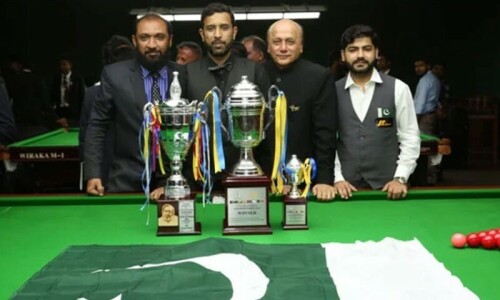KARACHI, Sept 11: The head of the defunct task team on Pakistan cricket on Wednesday emphasised good governance and warned against judicial system derailing the improvement achieved with the help of the game’s governing body — the International Cricket Council (ICC).
The ICC formed a Pakistan Task Team (PTT) under the England and Wales Cricket Board (ECB) chairman Giles Clarke in 2009 soon after the terror attacks on the Sri Lankan team bus during the Lahore Test in March that year to help the troubled country uplift its structure and make efforts to revive international cricket.
The ICC also sought from its member countries to run democratically, without undue interference from the government, failing which members can face sanctions.
The Pakistan Cricket Board (PCB) implemented a new constitution that was appreciated by the ICC earlier this year, but a ruling by the Islamabad High Court suspended the incumbent chairman Zaka Ashraf on grounds of holding dubious elections and stopped the PCB from taking major decisions until fresh elections before Oct 18.
A PCB appeal against the court ruling is still pending for hearing.
The newly-elected Pakistan government then appointed Najam Sethi as the interim (caretaker) PCB chairman but the court’s ruling has impeded board’s working.
Clarke, who met Sethi — who is presently on a private visit to London on Wednesday, hoped that the judicial system should not derail Pakistan cricket.
“At the ICC and PTT we are concerned that [Pakistan’s] judicial system should not be used to derail the important improvement in PCB’s governance in recent times and the PCB must be allowed to manage its [day-to-day] affairs independently,” Clarke told Dawn in an interview from London.
“Otherwise, the ICC and PTT will sought to help Pakistan cricket, which is a very integral part of world cricket.
“We could move to create an environment in which the administrators can function in pursuance of the ICC constitution without any outside interference,” said Clarke.
The 60-year-old former Somerset club cricketer and now a successful businessman currently serving his third term (which ends in March 2015) as the ECB chief after succeeding David Morgan in 2007, Clarke said Pakistan had attained good progress towards ideal governance which should not be allowed to get wasted.
“As the chairman of the PTT during the last four to five years, we have seen some major changes to the PCB governance, it was becoming an independent body and not the institution over which the Pakistan government had full control,” said Clarke.
“I sincerely hope the good work does not go waste because we feel Pakistan is an important cricketing nation and its officials should be allowed to work without interferences.”
Giles, it must be mentioned here, is also the head of a four-member committee which has been assigned to look into easing the sanctions on banned Pakistan fast bowler Mohammad Aamir after Sethi raised the issue during the ICC annual meeting in London last June.
Aamir was banned for a minimum of five years in the infamous spot-fixing case that surfaced during the fourth Test against England at Lord’s in August 2010. Also banned were the then Pakistan captain Salman Butt and paceman Mohammad Asif.














































Dear visitor, the comments section is undergoing an overhaul and will return soon.